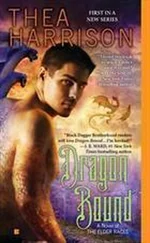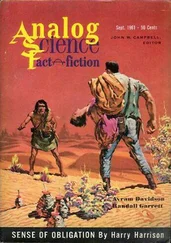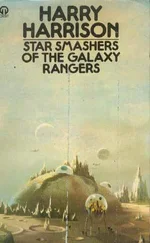M Harrison - Viriconium
Здесь есть возможность читать онлайн «M Harrison - Viriconium» весь текст электронной книги совершенно бесплатно (целиком полную версию без сокращений). В некоторых случаях можно слушать аудио, скачать через торрент в формате fb2 и присутствует краткое содержание. Жанр: Фэнтези, на английском языке. Описание произведения, (предисловие) а так же отзывы посетителей доступны на портале библиотеки ЛибКат.
- Название:Viriconium
- Автор:
- Жанр:
- Год:неизвестен
- ISBN:нет данных
- Рейтинг книги:3 / 5. Голосов: 1
-
Избранное:Добавить в избранное
- Отзывы:
-
Ваша оценка:
- 60
- 1
- 2
- 3
- 4
- 5
Viriconium: краткое содержание, описание и аннотация
Предлагаем к чтению аннотацию, описание, краткое содержание или предисловие (зависит от того, что написал сам автор книги «Viriconium»). Если вы не нашли необходимую информацию о книге — напишите в комментариях, мы постараемся отыскать её.
Viriconium — читать онлайн бесплатно полную книгу (весь текст) целиком
Ниже представлен текст книги, разбитый по страницам. Система сохранения места последней прочитанной страницы, позволяет с удобством читать онлайн бесплатно книгу «Viriconium», без необходимости каждый раз заново искать на чём Вы остановились. Поставьте закладку, и сможете в любой момент перейти на страницу, на которой закончили чтение.
Интервал:
Закладка:
“Ringmer’s father was a half-wit,” said the Yule Greave, yawning and pouring himself more lemon gin.
She ignored him. “Lord Cromis, are you young men at all interested in such things in the city now?” she asked me. Her eyes were green. She had unfolded the cloth to show me a complex pattern of leaf-like shapes.
“Some are,” I said.
“Because I’ve filled a whole gallery with them. Ringmer-”
“Have they shifted the rubble in the south avenue?” the Yule Greave broke in suddenly.
“I don’t know.”
“It was important to get that rubble moved today,” the Yule Greave said. “I want it as infill further down the valley. We’ve got mud up to our ears down there: I told Ringmer this morning.”
“Nobody told me that’s what they were supposed to be doing,” she said.
The Yule Greave muttered something I couldn’t quite catch and emptied his glass quickly. He got up and stared out at the ruined raspberry canes and lichen-covered apple boughs in the garden. This left his wife and me marooned at the other end of the room with only the embroidered cloth in common. A few transparent blue and orange flames stirred round the unseasoned logs in the hearth.
“Ringmer will show you the rest of the horse,” she said. “I’m so glad you’re interested.”
She folded the fabric up again, her long thin hands white in the shadows. “Sometimes I feel like wearing it myself,” she laughed, holding it up against her shoulders. “It’s so glorious!” I had a brief vision of her as she must have been in the days of the old queen’s court-waxy and still in a stiff, grey, heavily embossed garment down to her feet, like a flower in a steel vase. Then the Yule Greave came and stood between us to tip into his glass whatever dregs remained in the brown stone bottle. He was walking heavily up some private hill again.
“Don’t you want to look at the stuff I was telling you about?” he said.
“I shouldn’t stay more than a few minutes,” I answered. “My men will be waiting for me-”
“But you’ve only just arrived!”
“We have to be back in Uroconium by tomorrow morning.”
“He wants to see the horse, whatever else,” the Yule Greave’s wife insisted.
“Oh, does he? You’d better go and show him, then,” he said, looking at me as if I had let him down and then turning abruptly away. He poked so hard at the fire that one of the logs fell out of it. Smoke came into the room in a thick cloud. “This stinking chimney!” he shouted.
We left the room, the Yule Greave looking after us red-faced and watery-eyed. Her gallery, I found out, was a mezzanine floor somewhere in the west wing. The sun was just coming round to it, pouring obliquely in through the tall lanceolate windows. The Yule Greave’s wife stood in an intermittent pool of warm yellow light with her hands clasped anxiously.
“Ringmer?” she called. “Ringmer?”
We stood and listened to the wind blustering about outside.
After a moment a boy of twenty or so came out of the shadows of the mezzanine. He looked surprised to see her. He had the thick legs and shoulders of the moorland people, and the characteristic soft brown hair chopped off to a line above his raw-looking ears. He was carrying a horse’s head on a pole.
“I see you have the rest of the Mari,” she said with a smile. “Do you think you could show Lord Cromis? I’ve brought the coat back with me.”
It was an astonishing specimen. Usually you find the skull boiled and crudely varnished, or buried for a year to get rid of the flesh, a makeshift wire hinge for the jaw, and the bottoms of cheap green bottles for eyes. This one had been made long ago, and with more care: it was lacquered black, its jaw hinged with massive silver rivets, and somehow the inside of a pomegranate had been preserved and inserted, half in each orbit, so that the seeds made bulging, faceted eyes. It must have been appallingly heavy for the operator. The pole on which it rested was brown bone, three and a half feet long and polished with use.
“It is very striking,” I said.
The boy now took the embroidered cloth and shook it out. Hooks fitted along its top edge allowed it to be gathered beneath the horse’s head so that it fell in stiff folds and obscured the pole. With a quick, agile movement he slipped under it and crouched down. The Mari came to life, humpbacked, curvetting, and snapping its jaw. It predated not only the Yule Greave but his house. Time opened like a hole underneath us, and the Yule Greave’s wife stepped back suddenly.
“ ‘Open the door for us,’ ” chanted the boy:
“ ‘It is cold outside for the Grey Mare
Its heels are almost frozen.’ ”
“I would admit you at my peril,” I said. The Yule Greave’s wife laughed.
Later I went to examine some manuscripts which belonged to the house. They were kept at the other end of the mezzanine. When I looked back the Yule Greave’s wife was standing next to the mast horse. Its eyes glittered, its lower jaw hung down. Her hand was resting on its back, just as it might rest on the neck of a real animal, and she was saying something to it in a low voice. I never found out what, because at that moment the Yule Greave came puffing and panting into the gallery, limping as if he had banged his leg and shouting,
“All right, come on, you’ve seen enough of this.”
The Mari reared up for a second, bared its white teeth, then retreated into the shadows, and the boy Ringmer, presumably, with it.
At the door of the staircase which led to the Yule Greave’s private room I took leave of his wife, in case, as she said, we did not meet again.
“We see so few people,” she said.
“Hurry up,” urged the Yule Greave. “It’s quite a climb.”
The staircase was so narrow that he rubbed his shoulders on the walls as he led the way up, brushing off great flakes of damp yellow plaster. His fat pear-shaped buttocks shut out the light. The little square room was right at the top of the house. From its narrow windows you could see one of the stone avenues stretching away, a sliver of brownish hillside, and a bend in the shallow stony river. The wind boomed around us, bringing quite clearly the bleat of moorland sheep.
The Yule Greave tried to open a trap door in the ceiling so that we could go out onto the roof, which was flat there. The bolts were rusted shut, but he would give up only after a lot of heaving and grunting.
“I can’t understand it,” he said. “I’m sorry.”
He hammered at one of the bolts until he cut the heel of his hand, then his eyes watered and he began to cry. He turned away from me and pretended to look out across the hillside, where the sheep were scattered like grey rocks. “If we fail,” he said, “the future will judge us very harshly.” He sniffed and blinked. He looked at his cut hand, then wiped his eyes with it, leaving a smear of blood. “Now look what I’ve done. I’m sorry.”
I couldn’t think of anything to say.
The tower smelled of the old books he had abandoned to the mould in haphazard piles. I picked up Oei’l Voirrey and The Death and Revival of the Earl of Rone. I asked him if he would show me his souvenirs, but he seemed to have lost interest. He kept them in a wooden chest: a few dolls made out of women’s hair and bits of mirror; some cooking implements; a knife of curious design. The damp had got at everything and made it worthless. “It’s just the sort of thing we all picked up,” he said. “I think there’s a mask in there somewhere.”
“The men of the community set out in the afternoon,” I quoted, “and, aftermuch parading and searching, discover the Earl of Rone hidden ineffectuallyin the low scrub…”
“You can keep the Oei’l Voirrey if you like,” he said.
Читать дальшеИнтервал:
Закладка:
Похожие книги на «Viriconium»
Представляем Вашему вниманию похожие книги на «Viriconium» списком для выбора. Мы отобрали схожую по названию и смыслу литературу в надежде предоставить читателям больше вариантов отыскать новые, интересные, ещё непрочитанные произведения.
Обсуждение, отзывы о книге «Viriconium» и просто собственные мнения читателей. Оставьте ваши комментарии, напишите, что Вы думаете о произведении, его смысле или главных героях. Укажите что конкретно понравилось, а что нет, и почему Вы так считаете.











